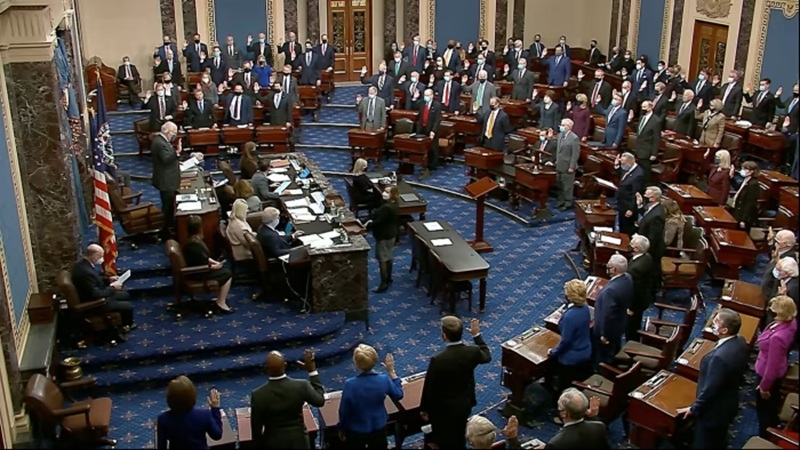US Senate Has Scheduled Hearing on Crypto Taxation By October 1st


The US Senate Finance Committee has scheduled a public hearing titled “Examining the Taxation of Digital Assets” for October 1, 2025, at 10:00 a.m. ET.
The session will take place in Room 2154 of the Dirksen Senate Office Building in Washington, D.C., and will be livestreamed via the committee’s website. Chaired by Sen. Mike Crapo (R-Idaho), the hearing aims to address longstanding ambiguities in how cryptocurrencies and other digital assets are taxed under current IRS rules, which many in the industry argue are outdated and hinder innovation.
Crypto taxation has been a flashpoint since the IRS began treating digital assets as property in 2014, requiring users to report capital gains or losses on every transaction—even small ones like buying a coffee with Bitcoin.
This has led to compliance burdens for the estimated 50 million US crypto users and a $2.5 trillion market. Recent legislative efforts, including the 2021 Infrastructure Investment and Jobs Act’s expansive “broker” definition, have amplified calls for reform by potentially forcing miners, DeFi developers, and wallets to report unfeasible data.
Register for Tekedia Mini-MBA edition 18 (Sep 15 – Dec 6, 2025) today for early bird discounts. Do annual for access to Blucera.com.
Tekedia AI in Business Masterclass opens registrations.
Join Tekedia Capital Syndicate and co-invest in great global startups.
Register for Tekedia AI Lab: From Technical Design to Deployment.
The hearing builds on broader 2025 crypto regulatory momentum: The House passed the GENIUS Act (stablecoin regulation) and CLARITY Act (SEC/CFTC jurisdiction) earlier this year. Sen. Cynthia Lummis (R-Wyoming), a vocal crypto advocate, introduced a comprehensive bill on July 3, 2025, to revise the Internal Revenue Code.
It proposes clearer definitions for digital assets, deferral of taxes on mining/staking rewards until sale, elimination of double taxation, and a de minimis exemption for transactions under $300. Sen. Crapo emphasized in a press release that the hearing offers a “critical opportunity to hear directly from stakeholders navigating today’s unclear tax environment.”
Potentially influencing future policy amid the White House’s push to treat digital assets as a distinct class. The panel will feature experts from industry, law, and accounting to discuss challenges and reforms. Here’s a breakdown:

Testimony is expected to highlight issues like taxing staking rewards as income upon receipt (vs. upon sale) and the need for thresholds to exempt routine, low-value transactions. Reforms could reduce reporting headaches, boost adoption, and prevent “double taxation” on rewards.
A de minimis rule might exempt everyday crypto spending from capital gains taxes. Clarity could fuel institutional inflows and a “bull market” by aligning US rules with global standards, though delays from Senate disputes or a potential government shutdown loom.
Exchanges like Coinbase (NASDAQ: COIN) may face short-term compliance costs but long-term gains. This ties into ongoing Senate Banking Committee work on market structure bills, with optimism for passage by year-end under leaders like Sen. Tim Scott (R-SC).

The hearing signals Washington’s pragmatic pivot toward crypto amid national debt concerns, with stablecoins eyed as a Treasury demand booster. Watch for post-hearing announcements on Lummis’s bill.
The Senate Finance Committee’s hearing on crypto taxation could significantly shape the regulatory landscape for digital assets in the US. Current IRS rules treat every crypto transaction as a taxable event, requiring users to track capital gains/losses even for small purchases.
A proposed de minimis exemption could eliminate reporting for everyday spending, reducing paperwork and tax burdens for the 50 million US crypto users. Proposals to tax staking or mining rewards only upon sale rather than receipt would prevent “double taxation,” making these activities more financially viable and encouraging participation in decentralized networks.
Clearer definitions for digital assets could resolve ambiguities around airdrops, forks, and stablecoins, helping users avoid unexpected tax liabilities. Revising the 2021 Infrastructure Act’s broad “broker” definition could exempt miners, DeFi platforms, and wallets from unfeasible IRS reporting requirements, fostering innovation and reducing compliance costs.
Clear, crypto-friendly tax rules could attract institutional investors and boost market liquidity, potentially sparking a “bull run.” Exchanges like Coinbase could benefit long-term, though short-term costs may arise from implementing new reporting forms like Form 1099-DA set for 2025-2026.
Aligning US tax policy with jurisdictions like the EU or Singapore could prevent capital flight and keep the US a hub for blockchain innovation. The hearing could accelerate bills like Sen. Lummis’s July 2025 proposal, which seeks to codify tax reforms. Success here might pave the way for broader crypto laws, such as the GENIUS Act (stablecoins) or CLARITY Act (SEC/CFTC roles).
Policymakers see stablecoins as a tool to increase demand for US Treasuries, potentially easing national debt concerns. Tax clarity could amplify this, positioning crypto as a fiscal asset. A potential government shutdown or Senate gridlock could delay reforms, prolonging uncertainty. Conversely, bipartisan support from figures like Sens. Crapo and Lummis could drive swift action by year-end.
Simplified rules and thresholds could improve compliance rates, reducing the IRS’s enforcement burden while increasing tax revenue from a growing crypto market. The rollout of Form 1099-DA will require exchanges to report user transactions, but clearer guidelines could minimize errors and disputes.
User-friendly tax policies could boost mainstream crypto adoption, driving demand for blockchain services and related stocks. Announcements post-hearing could move crypto prices, especially if reforms signal a pro-innovation stance.
By encouraging stablecoin use, tax reforms could indirectly support Treasury markets, as stablecoin issuers hold significant US debt as reserves. Even if reforms are proposed, IRS rulemaking and industry adoption could take years, leaving users in limbo.
With 2025 budget talks and a potential shutdown looming, crypto tax reform might be deprioritized. Stakeholders should monitor the October 1 livestream on the Senate Finance Committee’s website and follow witness testimony.





